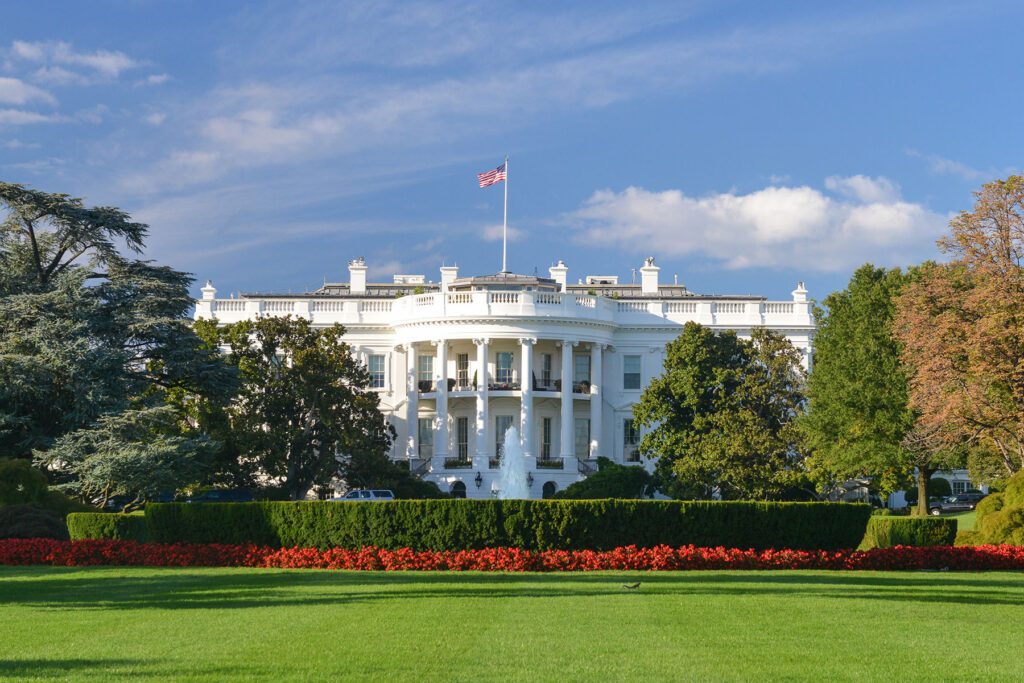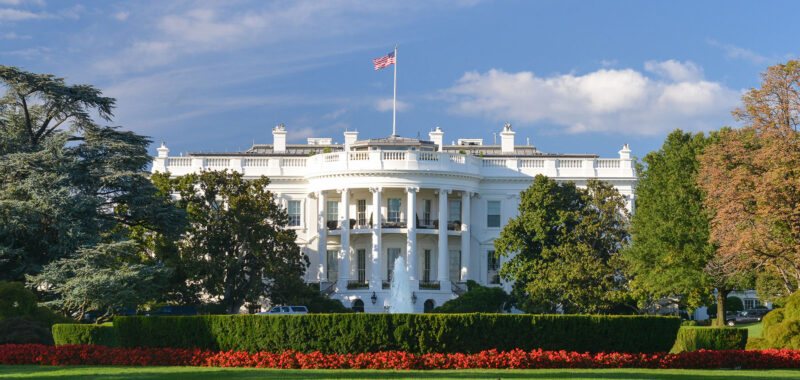
President Donald J. Trumpâs return to the White House, following an unexpectedly swift resolution to the 2024 election, has the travel industry bracing for what could be a sweeping reorientation of policy.
From potential shifts in visa regulations to renewed questions over environmental commitments, Trump’s second term may bring both uncertainty and opportunity for international tourism, industry regulation, and climate initiatives.
As travel executives assess the likely impact, the industry is poised for a period of recalibration, navigating the balance between growth ambitions and the anticipated changes in Washington.
Visas and International Visitors: Will the Flow Continue?
The State Department made strides under the Biden administration to reduce visa wait times and ease travel processes, including backfilling consular positions and using interview waivers to clear backlogs.
But Trumpâs first term saw more restrictive visa policies, with increased screening and additional scrutiny on travelers from certain regions. Some in the travel industry wonder whether Trumpâs policies could limit U.S. tourism growth just as the country approaches record-setting visitor numbers.
For international travelers, the prospect of renewed travel bans adds a layer of uncertainty. In 2017, Trumpâs administration restricted entry for citizens of Iran, Iraq, Libya, Somalia, Sudan, Syria, and Yemen, a move he has indicated he may repeat.
This time, however, the stakes are even higher as the U.S. nears its goal of 90 million annual visitors by 2026. Any new restrictions could shift the global travel landscape, impacting airlines, hotels, and businesses dependent on international tourists.
The Business Climate: Will Big Deals Face Less Resistance?
Under Biden, federal agencies aggressively regulated mergers and partnerships, with a focus on protecting consumers. Trumpâs prior administration, however, prioritized a less interventionist stance on mergers, and industry insiders anticipate a return to this approach.
For airlines, which faced intense regulatory scrutiny over the past four years, Trumpâs policies could ease pressure around deal-making. The Department of Justiceâs recent inquiry into competition in air travel may also fade under Trumpâs leadership, along with proposed rules requiring increased fee disclosures by airlines and hotels.
On the consumer protection front, Bidenâs administration levied hefty fines and imposed strict rules for airlines, compelling them to provide automatic refunds and adhere to enhanced accessibility requirements. It remains unclear if these consumer-focused protections will hold under Trump, whose previous administration favored fewer regulations. Airlines and hotel companies stand to gain, though consumer advocates may worry about a potential rollback of these protections.
Climate Policies: A Likely Shift in Priorities
The climate agenda, a cornerstone of the Biden administration, may be in for a reversal. Trump has consistently dismissed stringent climate regulations, opting instead to exit the Paris Climate Accord during his first term and favoring deregulation.
For the travel industry, which has increasingly invested in sustainability, a rollback of incentives â such as those for sustainable aviation fuel â could slow progress toward greener travel solutions. While Trumpâs approach could benefit companies by reducing compliance costs, environmental advocates worry that the industryâs momentum toward sustainable practices could stall.
Infrastructure Investments: Uncertainty on the Horizon
Under Biden, airlines and hotels saw substantial gains from infrastructure spending, including investments in airport modernizations and road projects that spurred demand for nearby hotels. While Trump has historically supported infrastructure projects, his second term could pivot away from large-scale spending initiatives, adding uncertainty for an industry eager for more long-term investments.
Without such funding, projects designed to ease congestion and modernize travel hubs may face delays, affecting airlines, hotels, and transportation services dependent on infrastructure enhancements.
Taxes, Tariffs, and Economic Factors: A Balancing Act
One of the starkest contrasts between Trump and his rival, Vice President Kamala Harris, was over corporate tax policy. Trump has proposed further reductions to the corporate tax rate, currently at 21%, which could free up capital for travel businesses.
Read More
Updated Nov. 4, 2024
On trade, however, Trumpâs enthusiasm for tariffs could reignite trade conflicts, with ripple effects that increase prices and reduce demand for travel services. If China and other trade partners retaliate, Boeing and other U.S. aviation companies could find themselves at a disadvantage, potentially disrupting supply chains for new aircraft just as global airlines ramp up orders.
Labor and Supply Chain
As the administration signals a return to stricter immigration policies, companies reliant on seasonal and temporary foreign labor brace for potential shortages. Hotels, restaurants, and resortsâsectors already grappling with pandemic-era workforce declinesâmay see intensified pressure to fill roles traditionally supported by foreign workers, particularly in regions dependent on international seasonal labor.
These potential shifts could drive up labor costs as employers turn to domestic hires in a tight labor market, where wage competition remains fierce. The administrationâs historically conservative stance on labor regulations may keep wage growth largely market-driven, creating both opportunities and challenges for employers seeking stability. Industry leaders also anticipate a potential shift toward automation to alleviate staffing gaps, with digital services and contactless technologies increasingly filling roles once held by entry-level workers.
As Trump retakes power, a looming question remains: Can the travel industry sustain its growth amid shifting regulatory and economic winds? While the Trump administration could herald opportunities for reduced regulation and business-friendly policies, the road ahead is anything but certain. Industry leaders are watching closely, preparing for changes that could reshape the landscape of travel in the U.S. for years to come.
Skiftâs in-depth reporting on climate issues is made possible through the financial support of Intrepid Travel. This backing allows Skift to bring you high-quality journalism on one of the most important topics facing our planet today. Intrepid is not involved in any decisions made by Skiftâs editorial team.

